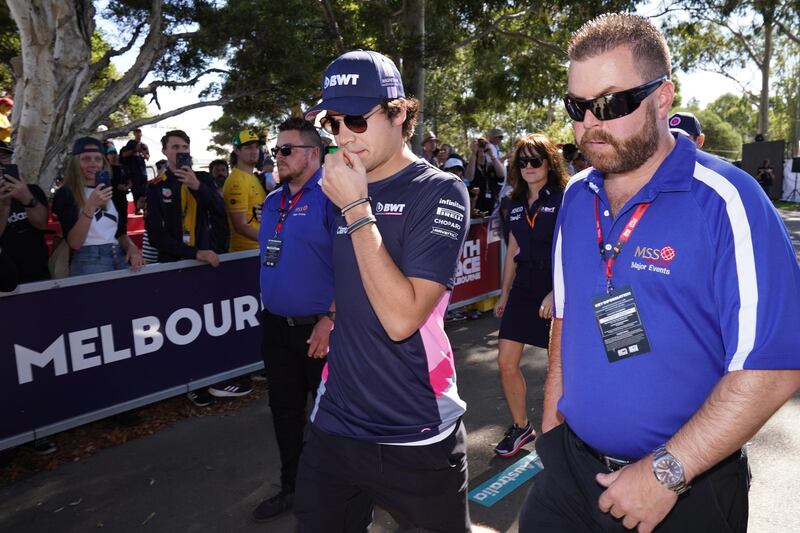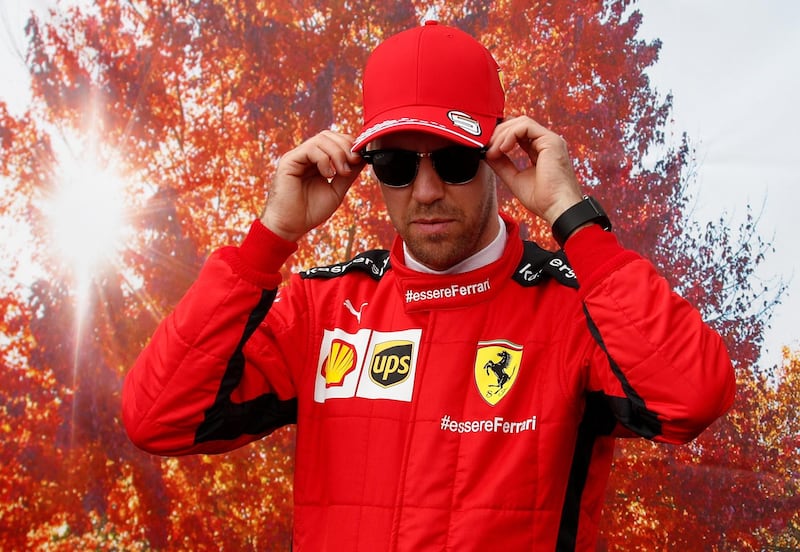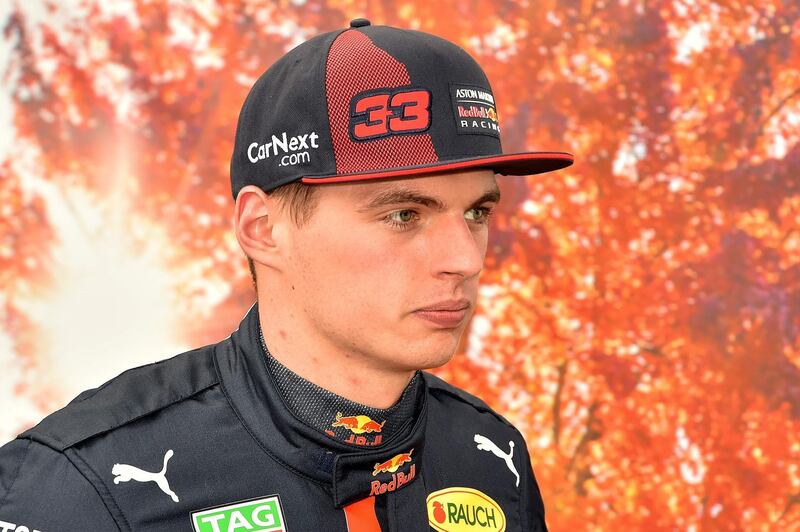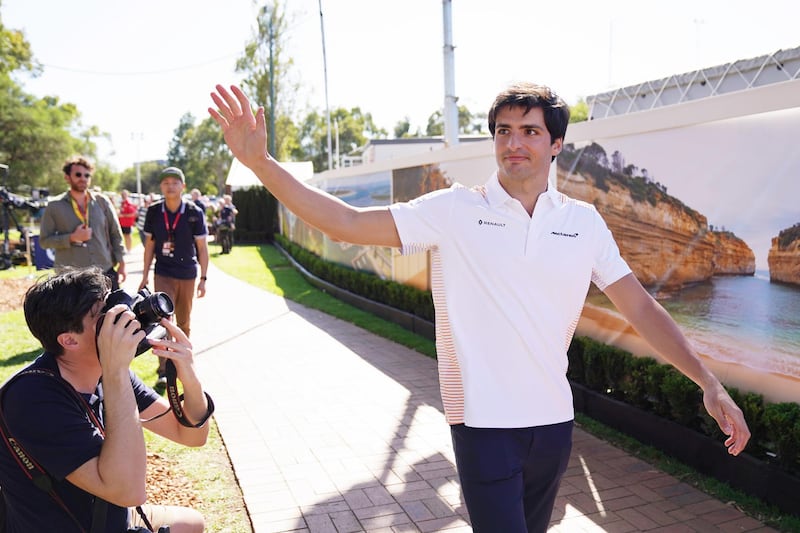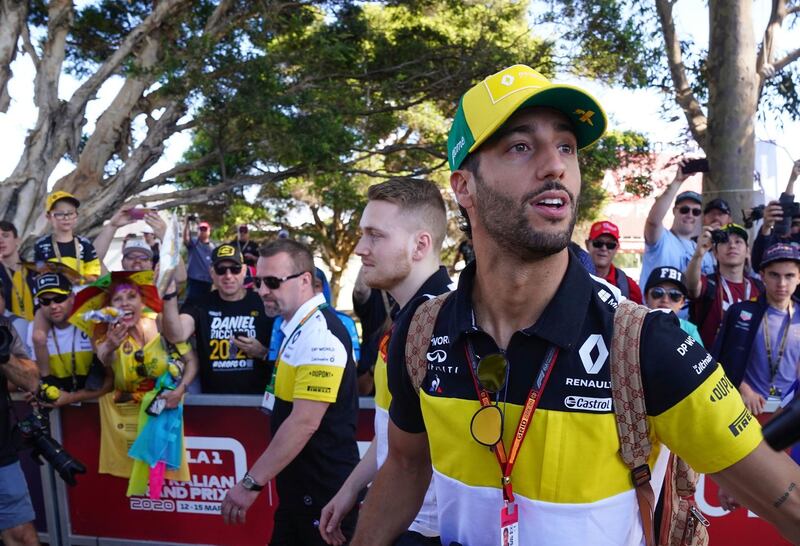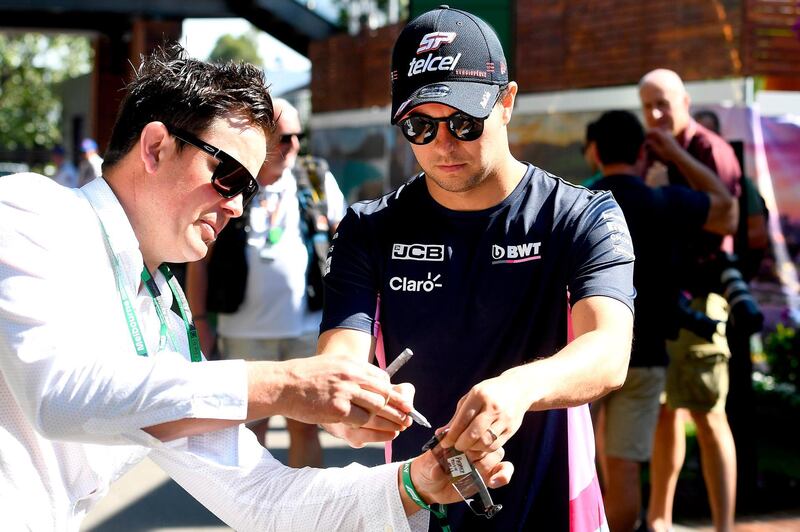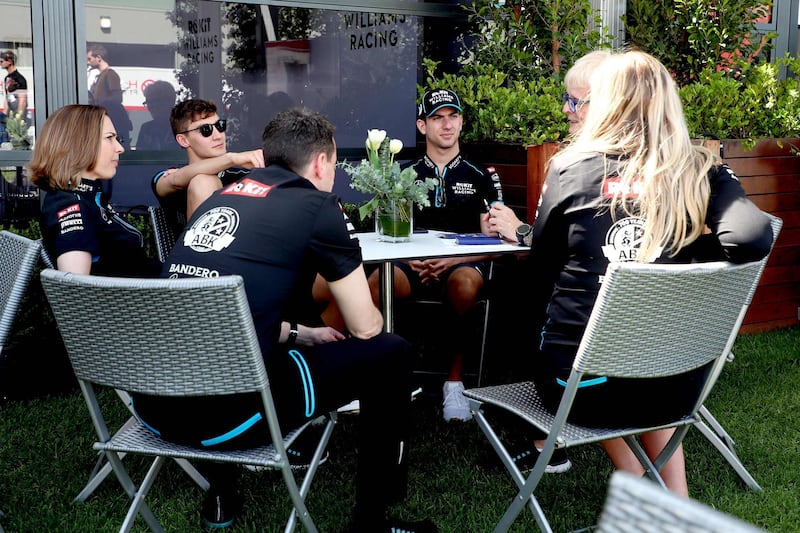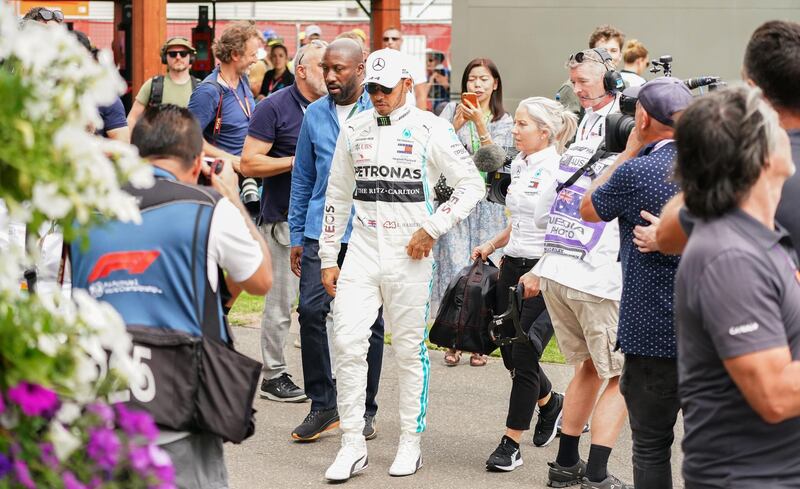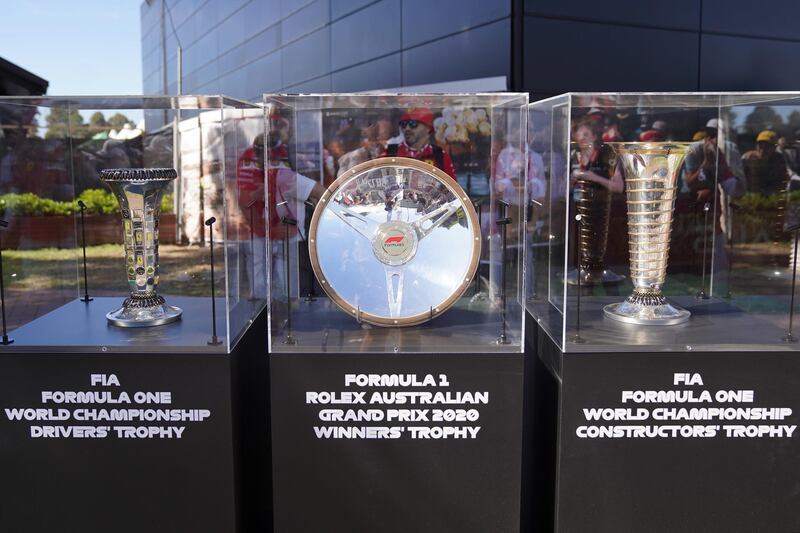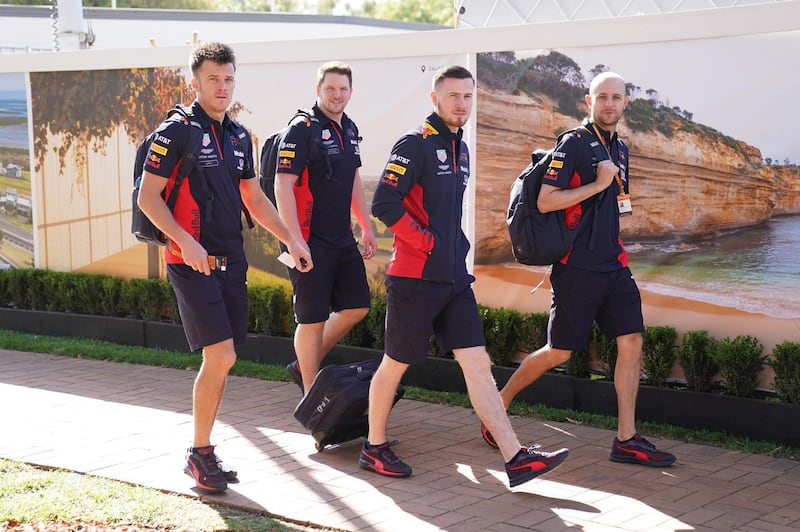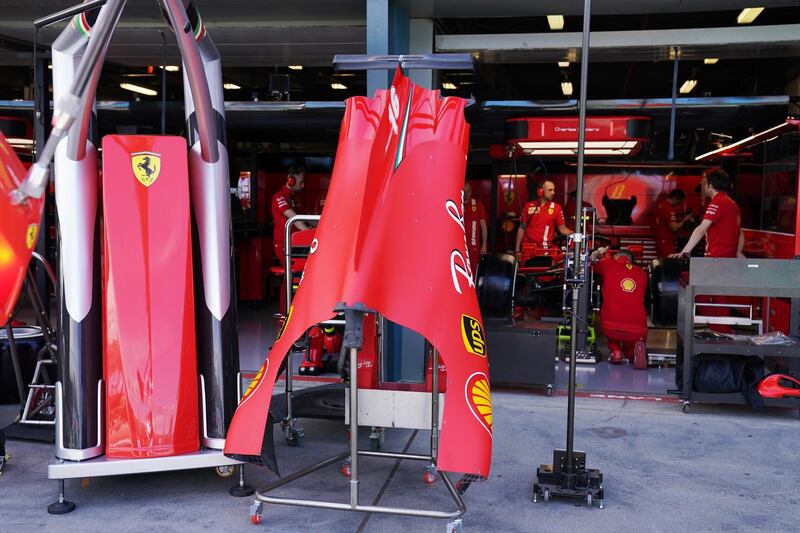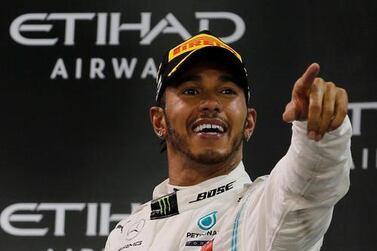Formula One teams arrived back in Europe this weekend to two weeks of self-isolation after a debacle of an Australian Grand Prix.
Some call the handling by the sport’s overlords “a disgrace” while the powers-that-be are publicly saying they dealt with an ever-changing crisis well.
Privately the word is they are more than a little embarrassed at the chaotic chain of events that was entirely predictable in the teeth of a raging pandemic.
Ultimately F1 ended up doing the right thing, of course, in calling off the opening race of the season but it only did so at the point of a gun – when furnished with absolute proof a deadly virus could sweep the paddock and grandstands.
The lesson will be a tough one: the impact in financial terms alone will be approaching £200 million (Dh901m). Not that anyone is counting that number yet. The hope can only be that there will be no fatalities.
The rear-guard action by the FIA, owners Liberty Media and teams in the coming months will probably be that ‘hindsight is a wonderful thing’.
But was it really that sensible to fly a 2,000 strong paddock across the world in the midst of a rampant pandemic and believe that no-one would catch a virus sweeping the globe and carry it through a close-knit paddock? Especially when three teams - Ferrari, AlphaTauri and Pirelli – were setting off from an area in Italy where the death toll was already running at 200 daily.
Footballers in England, Spain and Italy have been diagnosed. Matches and tournaments cancelled. Rich and poor alike are taken. Health rather than wealth appears to be the only currency.
So was it really sensible to expect F1 to walk through this storm unaffected? Worse still, maybe they could isolate well but could the F1 overlords be absolutely sure they weren’t the ones actually importing the virus?
Years ago two friends tried an experiment in the paddock, where teams work shoulder to shoulder. They started a salacious driving-signing rumour at one end and slowly walked to the other. So close-knit is the community that their own manufactured tittle-tattle was relayed to them before they got to the other end a few hundred yards later. What hope then in face of a virus?
F1 has a long history of laughing in the face of approaching catastrophe. A recent United States Grand Prix was held in the teeth of a deluge. The same happened in Malaysia. And the sport has faced earthquakes and a tsunami in Japan, only sending the travelling circus home hours before disaster was due.
But a virus is very different. It can’t be dodged at the last minute.
So how did it go so wrong in Melbourne? Damningly, the seeds of the disaster were sown partly in the lack of preparation and leadership. The sport was not ready, the decision-making process was far from robust; too many people were needed to make key decisions.
The light and nimble decision-making process under Bernie Ecclestone has been replaced by a democratic leviathan involving teams, sponsors, promoters, the health authority, owners Liberty Media, some of them on different continents
Jean Todt, the head of F1 rule-makers, the FIA, was at a Hainault Business Club dinner in France. Liberty boss Chase Carey was flying from Hanoi.
The crucial moment came at around 9.30pm Thursday evening with the first positive test after eight had proved negative.
Todt, apparently, wanted the race called off but lacked the authority. Carey was in mid-air and uncontactable.
The teams scrambled for urgent discussions and Red Bull, AlphaTauri (Red Bull’s B team), Racing Point and Mercedes wanted to continue. One Covid-19 case did not mean there would be others, they reasoned. Could the race go ahead with the paddock on lockdown, perhaps? Ferrari, Renault and Alfa Romeo did not agree. (McLaren did not vote).
Apparently, Mercedes chief Toto Wolff then took a call from Daimler boss Ola Kaellenius who was concerned about the team’s duty of care to its staff. Wolff changed his mind and the balance of power switched decisively at a second meeting.
But why did it then take 12 hours for F1 to officially announce the race was off? And why was it down to the teams in the first place?
The chaos continued as day dawned Friday in Melbourne. With the cars due to run for the first time promoters said on local radio it was “business as usual” and tens of thousands of fans were already at the gates only for the Victorian Premier to announce hours later no-one would be allowed into the Albert Park circuit. Reports later emerged that two drivers - former world champions Sebastian Vettel and Kimi Raikkonen - were already on their way to the airport.
It emerged that aside from the nine known cases McLaren had also put 14 more staff into hotel self-isolation.
Within 24 hours the next two races in Bahrain and Thailand were called off while Holland, Spain and Monte Carlo are likely to go too.
Few of those involved emerge from the saga with much credit. Lewis Hamilton is certainly one. With a history-making seventh world title surely there for the taking he had most reason to want to get the season to get going but said Thursday he was "shocked" the event was still on and reasoned "cash is king".
In the weeks to come team bosses, promoters, local politicians and even the sport’s media need to look at themselves. Can they honestly say they shouted loudly enough that the Australian GP should not go ahead?
With an enforced two month break a sport that is famous for its speed has plenty of time to reflect on how and why it was so slow when lives were on the line.

